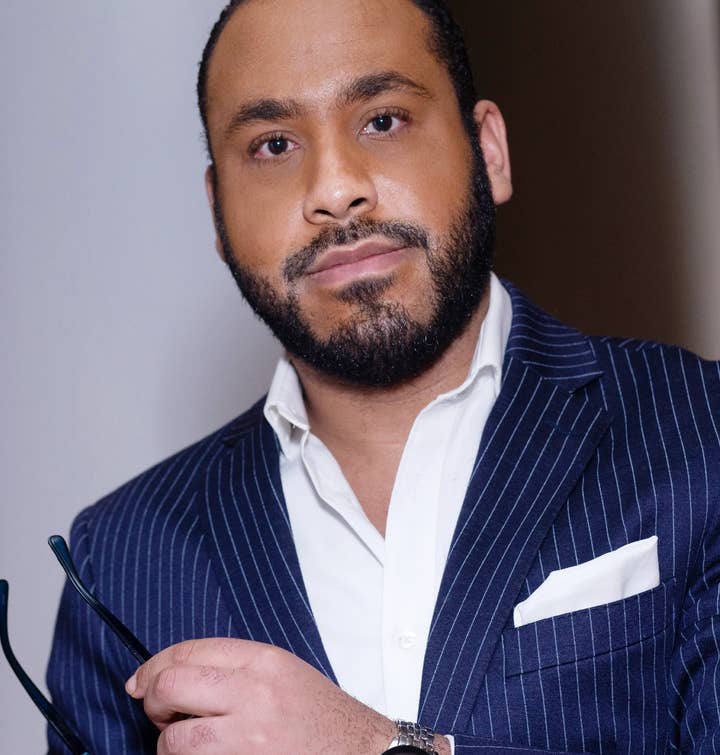Meet CtW: The investors taking on Activision Blizzard and EA over exec pay
Dieter Waizenegger and Michael Varner on why they want to change how corporations think about compensation
It's no secret that executives at some of the world's top companies are paid huge sums. Many corporate leaders have an annual salary that dwarfs what the vast majority of us earn, with further awards for performance and so on take their compensation to eye-watering levels.
There are, of course, people complaining about the millions that top executives receive, including CtW Investment Group. Founded back in 2006, this organisation advises several union pension funds in the US and has adopted the mission of holding companies accountable for unethical behaviour. In recent years, CtW has taken on the likes of Uber and McDonald's over executive compensation, and Amazon over issues about the safety of its employees.
But now the games industry is squarely in its crosshairs. In June, CtW wrote to Activision Blizzard shareholders urging them to vote against its Say-on-Pay proposal. This is where investors are polled at a company's annual meeting on whether they approve of how much a company plans to compensate its executives. A similar letter was sent to Electronic Arts' shareholders earlier this month.
"We've reached a point in the exec compensation space where ordinary course pay programme isn't good enough"
Michael Varner
"We believe that having good compensation practices is tantamount to the long-term success of a company," CtW executive director Dieter Waizenegger explains. "With huge equity awards and so-on, there are incentives to focus on the short-term. That's an area that we're focused on and pay a lot of attention to.
"Activision Blizzard has been on our radar for a while given that there have been long-standing corporate governance issues that it hasn't been able to address. That's why we decided to set out more forcefully earlier this year. When we looked at EA, the double incentive awards that the company was giving out just didn't make sense to us at all."
Michael Varner, CtW's director of executive compensation, adds: "Somehow we've reached a point in the exec compensation space where ordinary course pay programme isn't good enough. That's what we saw with both Activision and EA. We're really trying to combat that across industries, across companies. It just so happens that we see this a lot in the games sector."
With EA, CtW told shareholders that CFO Blake Jorgensen and Ken Moss, its chief technology officer, had received overlapping multiple performance-based awards. Their base salaries are $850,000 and $691,875 respectively, but they were also given special awards totalling $16.5m and $12.5m each during EA's 2018 financial year. The publishing giant had previously tried to justify this extra compensation as an attempt to retain top staff.

This retention argument is pretty common when it comes to executive pay. When a company's share price is doing well, it will say that it is giving its execs awards to keep them around in order to perpetuate that strong performance. The same is true for when the stock price isn't so hot, only this time executives are nominally given awards to incentivise them to work hard and improve the company's health.
In the case of Activision Blizzard, CtW claimed that the company had found "multiple ways to unnecessarily enrich its CEO", Robert Kotick. His base salary is $1.75 million, but once equity awards are factored in, the Activision Blizzard boss walked away with more than $30 million during 2019. That's 319 times the total compensation of the median employee at the company.
One way that CtW alleges the publishing giant does this is by the "Shareholder Value Creation Incentive" part of Kotick's current employment agreement, signed in November 2016. This says that if Activision Blizzard's close-of-trading stock price is at least twice the average end-of-trading price from the last quarter of 2016 for 90 consecutive days before December 31, 2021, then Kotick is awarded multiple equity awards from previous years.
"That's a little bit like losing a race four years in a row at the Olympics and then winning the fifth," Varner explains. "Instead of being awarded a gold medal for that fifth year, you get five; one for that year and four for the races you lost. That doesn't make any sense. It doesn't matter if it's sustainable or not. That's just unfair."
"If there are layoffs combined with excessive pay, that definitely raises red flags for us"
Dieter Waizenegger
In both letters to Activision Blizzard and EA shareholders, CtW makes reference to the sizeable layoffs both companies made during 2019. The former announced that it was laying off around 8% of its global workforce -- roughly 800 employees -- in February 2019, while the latter made 350 members of staff redundant the following month.
"We're definitely interested in company management practices. So if there are layoffs combined with excessive pay, that definitely raises red flags for us," Waizenegger says. "That is not the determining factor, but it definitely raises the issues to another level. That more strongly highlights in our belief that what these companies are doing is unsustainable."
Varner adds: "The games sector is unique because corporations are a little bit more brazen. Having workers crunch to finish on a project, then laying them off after it's completed is unique to the games industry. Those kinds of expected layoffs, right after a large game is released, are problematic."
CtW is already making progress with its campaign against excessive exec pay in games. While we don't know the results of EA's annual meeting with its shareholders yet -- it takes place on August 7 -- Activision Blizzard held its own annual meeting on June 11. That day, a whopping 43.2% of investors voted against the company's Say-on-Pay proposal, the largest opposition that Activision Blizzard has received to date.

"An S&P 500 level company receiving low support on their Say-on-Pay proposal is rare," Varner says. "The average support for companies in the S&P 500 is 90%, and only 12.6% receive below 80%. The number of companies getting below 60% approval is very small. They almost failed to get a majority. That's definitely a sign of investor agitation. It remains to be seen just what the company will do, if anything. If they don't, then they will face increased investor agitation."
But what else can be done to address the excessive compensation execs are receiving? CtW says that there needs to be a sizeable change in how these corporations operate at the highest level.
"The compensation committees and the boards at these companies really need to take responsibility and just ask what reasonable pay is and then stick to it," Waizenegger explains. "They need to not buy into the idea of this 'great man' theory of the CEO. They really need to be able to have the backbone and come up with strategies to effectively respond to the company's efforts to increase the pay of their executives. It really starts with the board.
"My suggestion is that, every time they hire a new CEO, they have to knock down the pay and not have a starting salary on the same level as their predecessor received."
"We believe that the current approach is not sustainable. We're really pushing for a rethink and a reset"
Dieter Waizenegger
Varner adds: "Internal promotion, as opposed to external hiring, can help address pay. When you hire externally, the company will sometimes grant an inducement or other awards to a CEO or named executive officer's pay package. We saw this with Uber, where it paid millions to get Dara Khosrowshahi to leave Expedia and come head up Uber. If promoting internally can't help knock down exec pay, it might make it less extreme."
Broadly speaking, CtW says that companies need to realise that the notion that top executives are worth as much as they are being paid might not be true. This goes against decades of conventional wisdom and perceived best practices of the corporate world.
"The idea executives need to be compensated beyond the ordinary course pay programme is a complete fallacy," Varner says. "Companies will argue that they have to pay these execs so well for retention, but they don't. That's where it starts: making the case, combating that conventional wisdom, and exposing it for what it is."
Having fired shots at both Activision Blizzard and EA, we imagine that CtW has some more potential targets in the games space. The investment firm won't share these details for obvious reasons, but it's safe to say that it is going to be keeping an eye on the dealings of the industry's top companies.
"We want to change the conversation and the approach," Waizenegger says. "We believe that the current approach is not sustainable. We're really pushing for a rethink and a reset. We want to make sure that this message is being heard loud and clear in the board room."
He concludes: "If 43.2% of shareholders opposing Say-on-Pay doesn't echo in Activision Blizzard's board room, then there seems to something wrong with the board members' hearing."

